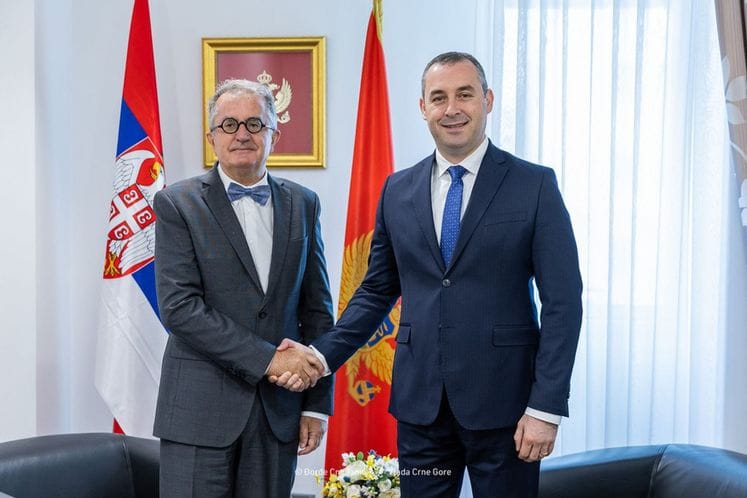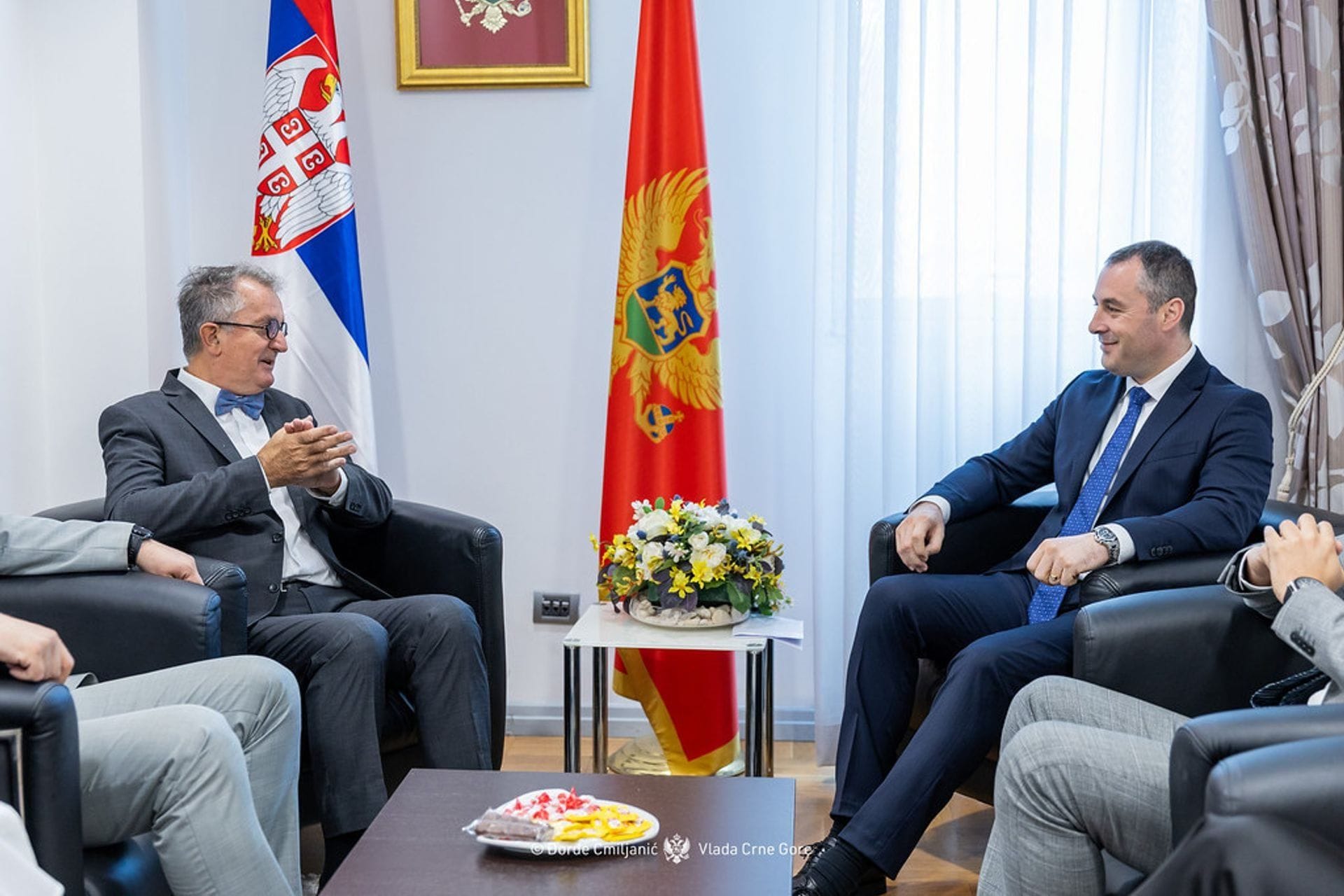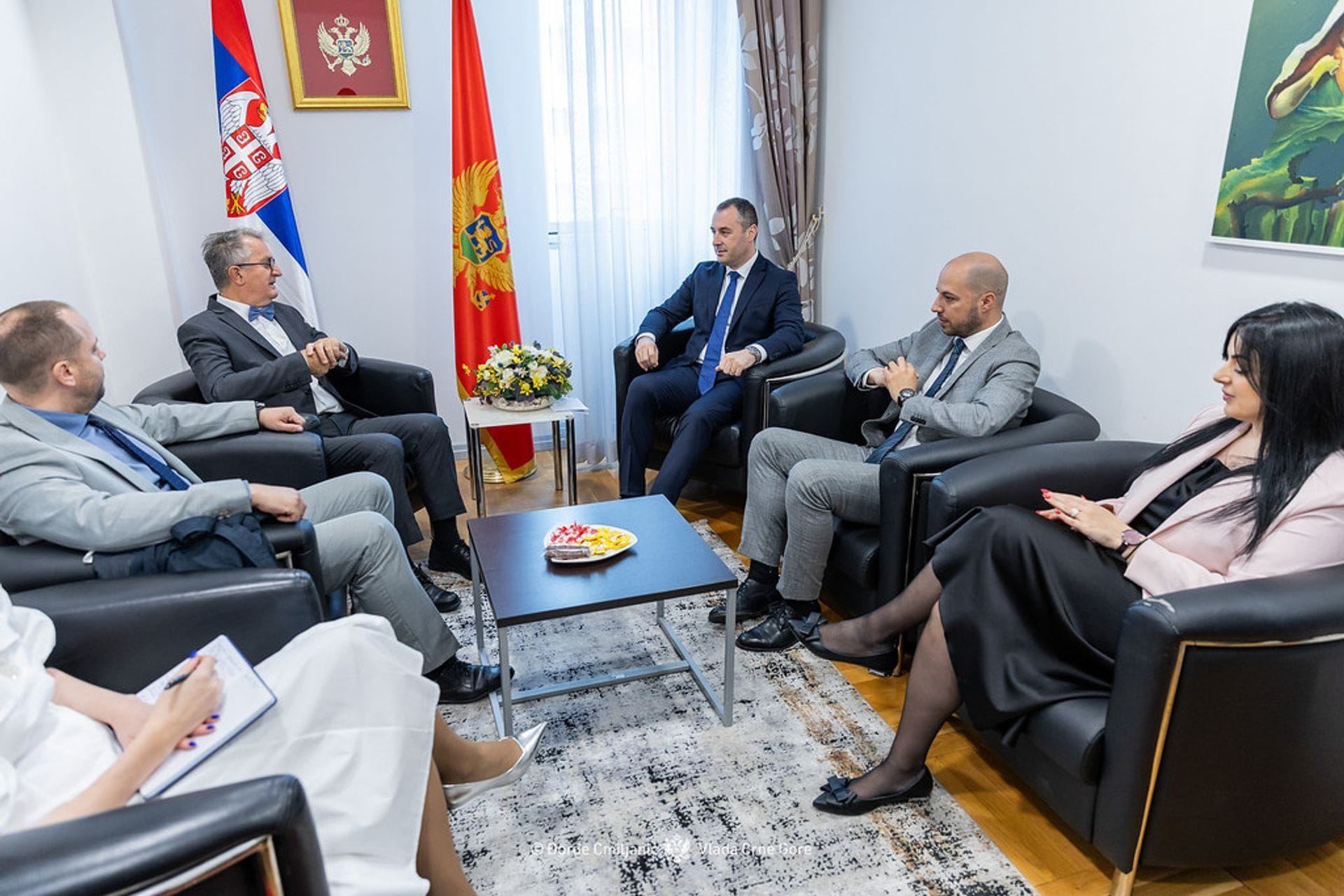- Government of Montenegro
Šćekić: Montenegro committed to cooperation with S...
Šćekić: Montenegro committed to cooperation with Serbia

Deputy Prime Minister for Demography and Youth and Minister of Sports and Youth Dragoslav Šćekić hosted a reception for the Ambassador of the Republic of Serbia to Montenegro, H.E. Nebojša Rodić.
During the meeting, discussions revolved around cooperation between the two states in the fields of sports and youth, culminating in the signing of a Memorandum between the Montenegro Sports and Youth Directorate and the Ministry of Youth and Sports of the Republic of Serbia.
Šćekić emphasised the anticipation of stronger collaboration between the two countries, facilitating student, youth, and sports exchanges, as well as implementing joint projects.

Additionally, Montenegro and Serbia collaborate within the framework of the Regional Youth Cooperation Office (RYCO) to increase youth mobility and participation in social and political life, with a focus on strengthening regional ties and the European integration process. They will also collaborate within the ERASMUS+ programme, where the Ministry of Sports and Youth partners with the National Youth Council of Serbia (KOMS) on capacity-building projects in youth policy.
Pleasure was expressed regarding the collaboration between the sports associations of the two countries, continuously working to strengthen sports relations.
Deputy Prime Minister Šćekić and Ambassador Rodić also discussed the construction of new roadways in Montenegro, linking the Bar-Boljare highway with Serbia, and the reconstruction of the Belgrade-Bar railway. They also addressed further strengthening cooperation between Montenegro and the Republic of Serbia in sports and youth, focusing on the development of sports medicine, organising youth meetings between the two countries, and enhancing collaboration in project preparation and EU fund applications.
Both parties agreed on the longstanding negative demographic trends in Montenegro, Serbia, and the region, emphasising the need for state policies aimed at increasing birth rates and ensuring a better quality of life for youth to encourage them to stay in their respective countries and build their futures.

